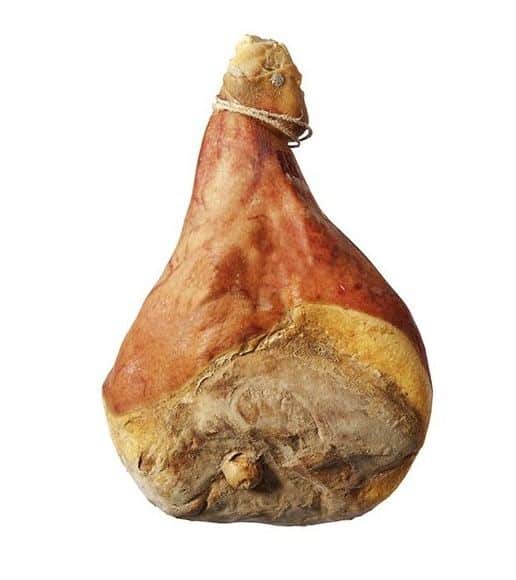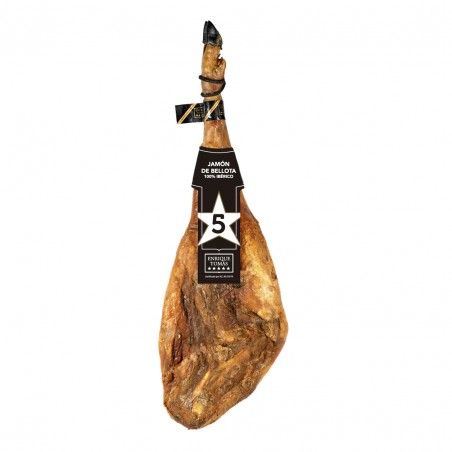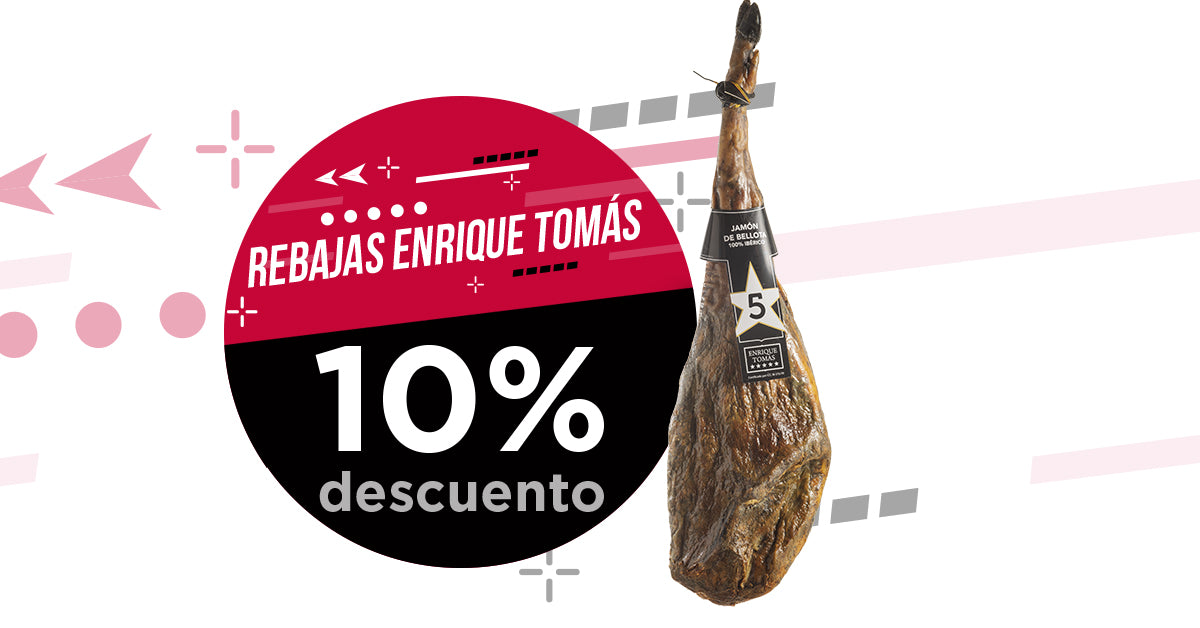
Is Jamón Gran Reserva for dinner fattening?
Prosciutto, Italian ham, is a very typical gastronomic product of the beautiful Italian country that resembles Serrano ham, but are Serrano ham and prosciutto the same? What is the difference between the two?
Many people ponder this question, but if you want to know everything about the relationship between Gran Reserva ham and Italian prosciutto, pay attention – we'll explain it to you!
Serrano Ham and Prosciutto
Their Similarities
Cured ham is typical in Southern Europe, with Spain and Italy being the two major international producers, represented by Serrano ham and raw prosciutto, respectively. In Portugal, they also produce cured ham, although it is less known; it's still a product of the Iberian Peninsula. If you've tried both Serrano ham and prosciutto, you've probably noticed that their slices look similar at first glance because they both come from the same pig breed: the white pig. However, they taste somewhat different. Both are delicious, but each has its own characteristics. Let's see:
Difference Between Prosciutto and Serrano Ham
Serrano ham is the typical cured ham of Spain, so you probably already know it. But do you want to discover everything about prosciutto? To understand the differences between Serrano ham and prosciutto, it's important to explain a bit about the latter first.
What is Italian Prosciutto?
The word "prosciutto" comes from the Italian term prosciugare, which means "to dry well." This type of curing is done with the hind legs of white pigs, which are salted, cured, and sometimes even cooked in wine (in which case, it wouldn't be raw). The production process can last from nine months to two years, depending on the type of prosciutto.
The weight of the pig must reach a minimum of 160 kg, and the pig breed is usually the Large White, Landrace, or Duroc. The Duroc breed is also used for crossbreeding with 100% Iberian sows, resulting in our beloved Iberian ham.

Italian Raw Prosciutto

5-Star Iberian Ham by Enrique Tomás
Regarding the production areas, Tuscany and Emilia are significant, with the most renowned being Parma, Friuli-Venezia Giulia, and San Daniele. Among them, there are also protected designations of origin or similar designations; here are the most well-known ones:
- Prosciutto di Parma, Italy, P.D.O.
- Prosciutto di San Daniele, Italy, D.O.P.
- Prosciutto di Modena, Italy, D.O.P.
-
Prosciutto Toscano, Italy, D.O.P.
The first two, Prosciutto di Parma and Prosciutto di San Daniele, are the most internationally renowned and probably the ones you've heard of. Both types are quite similar in appearance, aroma, and curing time, but the difference lies in the animals' diets. The pigs in Parma are even fed their famous Parmesan cheese. San Daniele prosciutto has a sweeter taste, and its color is less pink than Parma prosciutto.
That being said, let's look at the main differences between prosciutto and Serrano ham:
Texture and Shape
- The prosciutto, especially Parma prosciutto, is sweeter and moister in the mouth than Serrano or Gran Reserva ham. The latter is more cured and intense in flavor.
- Prosciutto crudo is usually partially or completely deboned before undergoing the curing process, resulting in its flattened "bandurria" shape. In contrast, Serrano ham can be completely deboned, but it is done when the piece is ready for consumption. It's understandable that prosciutto meat is more pink and tender than Serrano ham.
Diet and Curing
- The curing times are usually similar; the difference lies in the type of salt used, which is more humid for prosciutto and marine for Serrano ham.
- For Prosci
utto di Parma, pigs are fed with feed and a whey derived from Parmesan cheese, giving its slices that nutty taste. Serrano ham, on the other hand, is fed with feed and grains.
Prosciutto and Iberian Ham
The differences here deserve another blog entry, but we'll remind you of the most important ones:
- Iberian ham comes from a very different breed that is only raised on the Iberian Peninsula and is characterized by being the only breed that infiltrates fat into the muscle, which is the Iberian pig.
- Based on diet, Iberian ham can be cebo, bellota, or cebo de campo (formerly Recebo). Prosciutto, on the other hand, is distinguished only by its origin.
In terms of cuisine, we can say that Italians use prosciutto more than we use our ham, whether it's in pasta, pizza, or the famous bruschettas. In contrast, Iberian and Serrano ham are usually eaten raw or, at most, with some toasted breadsticks or slightly toasted bread. We also use it extensively to accompany salads, eggs in omelets or scrambled eggs, soups, and creams. Whether it's Serrano, Iberian, or prosciutto, try them all!
Enjoy each one at its moment – your moment!





